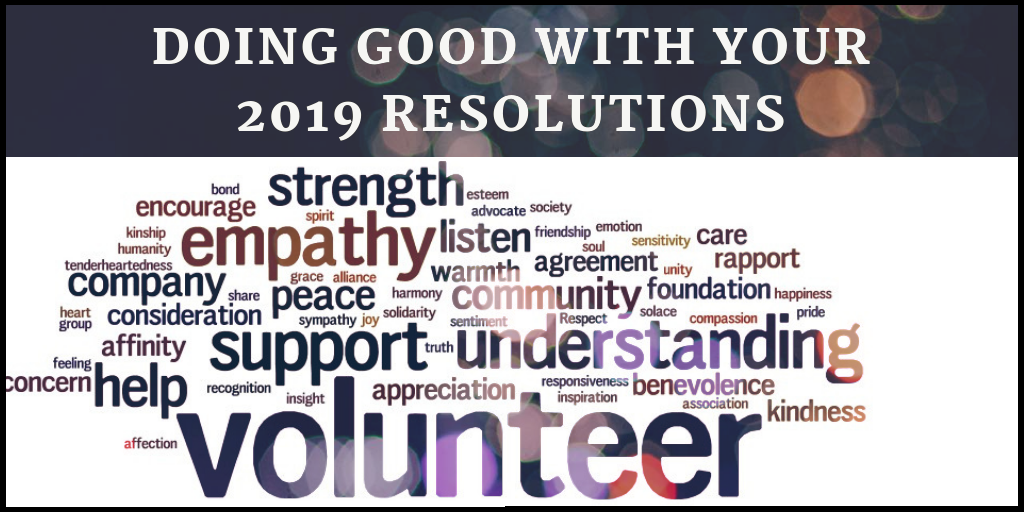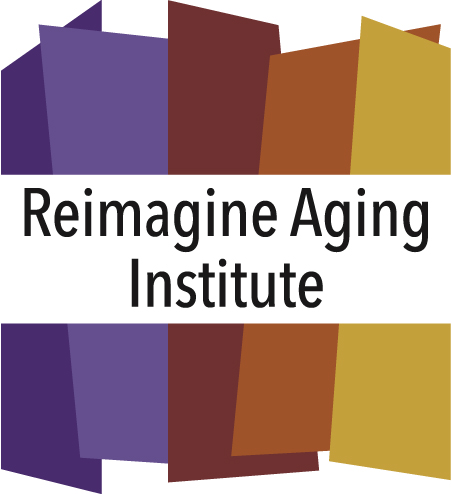 By CEO Deb Taylor
By CEO Deb Taylor
 2019’s ball has dropped and many people have begun their complicated relationships with their resolutions. With most New Year’s resolutions, we tend to focus on the self and the ways we can positively affect change in our own lives. The most common resolutions are “I want to lose weight, I want to eat healthier, save more money, spend time learning a new skill or hobby, travel more.” Of course these resolutions all have merit; self-improvement and self-care are essential parts of healthy living and something we should always be building on, but so too is our connection and attachment to others. In fact, one of the best ways of bettering ourselves is through community engagement and volunteering.
2019’s ball has dropped and many people have begun their complicated relationships with their resolutions. With most New Year’s resolutions, we tend to focus on the self and the ways we can positively affect change in our own lives. The most common resolutions are “I want to lose weight, I want to eat healthier, save more money, spend time learning a new skill or hobby, travel more.” Of course these resolutions all have merit; self-improvement and self-care are essential parts of healthy living and something we should always be building on, but so too is our connection and attachment to others. In fact, one of the best ways of bettering ourselves is through community engagement and volunteering.
The thing that makes our neighborhoods and towns home and not just geographical squares we live in is a sense of community, our emotional attachment to what is happening in the places we live. The reality is there are simply not enough paid staff to address all the needs of our communities. Most nonprofits rely on volunteers in some form to actualize their mission. There are thousands of nonprofits in the Twin Cities metro alone looking for volunteers to further their impact. Just as we can all better ourselves, we all have the power right now to better the communities we belong to. Volunteering in any capacity is one of the most effective ways to emotionally invest in your community and the causes you believe in, and it can be as big or small a commitment as your life allows.
Setting aside any amount of time to volunteer makes for the perfect resolution because it satisfies so much of that self-improvement that we crave in our resolutions. Volunteering means being out, physically and mentally engaged with others towards a common goal of improving our communal spaces. The obvious, immediate payoff is the social good done: families are housed, social isolation is lessened, the hungry are fed, city blocks are cleaned, etc. The long-term benefits are not just the health and wellness we bring to our community, but to ourselves as well.
Volunteerism has also been shown by many studies, including a report by the Corporation for National & Community Service, to have a multitude of benefits for the health and happiness of individuals who volunteer. The act of volunteering has consistently been found to cause what researchers call “the happiness effect,” meaning the chemistry in our brain is at work producing the pleasure chemical dopamine, making us feel more positive. Simply put, the more good we do, the better we feel. Furthermore, we are building healthy relationships with each other as we work towards a better society. These social and health benefits are particularly important for older adults who are themselves volunteers, a number that is rapidly growing as the Baby Boomer generation comes into retirement. Research shows volunteers encounter greater longevity and less frequency of heart disease. Volunteers may be at a lower risk for memory loss, too. The social interaction can significantly reduce the progress of Alzheimer’s and other types of dementia.
When sitting down to really consider your resolutions for 2019, in addition to self-improvement, be mindful of the ways you can improve your community through engagement. Consider devoting time to your community or a cause you believe in, even if it’s just a few hours a month. Maybe that’s volunteering with a local non-profit. Maybe it’s as small as shoveling your neighbor’s driveway, or even just asking them how their week is going.
At Senior Community Services, our volunteers make it possible to serve thousands of older adults annually. If you are interested in learning more about our volunteer opportunities throughout 2019, visit https://seniorcommunity.org/volunteer or find us on Facebook. We all age, so invest in your older self by becoming more involved with the aging process today. Let’s ageism-proof our society by promoting healthy community involvement at every age group.
Deb Taylor is the CEO of Senior Community Services and its Reimagine Aging Institute, a nonprofit that helps older adults and caregivers navigate aging to maintain independence and quality of life. We provide a wide array of programs — www.seniorcommunity.org




